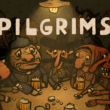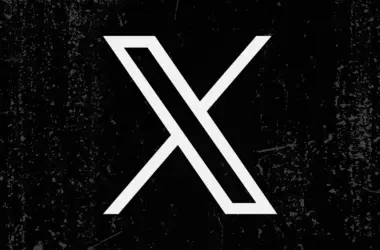Decades of years ago, it was extremely easy for anyone to publish anything on the World Wide Web and have their publication right on the first pages of those Search Engines in a matter of minutes; give or take a few days. Of course, the king of these search Engines was and has always been Google because of the exhaustiveness of the results the search Engine platform dished out to users.
But Google did not become king by exposing their users to incomplete information presented in terrible formats. The search engine platform adopted an algorithm that made it only relatively easy for those who understood the algorithm, and extremely technical for those who didn’t.
The Algorithm? A number of bots called “Google Bots”. These bots are called “Spiders” in programming language, and they earned this name because they literally crawl millions of web pages to determine which is worth showing to users.
Of course, because they have been programmed to follow some rules, they can only act within these rules with a 10% chance of dynamism and no room for improvisation. These bots’ activities have been ruled by SEO geeks as On-page and Off-page SEO
Table of Contents
Off-Page SEO
Backlinks
This is the foremost condition Google Spiders have been programmed to consider when exploring SEOs factors towards ranking a page. Backlinks refer to the amount of links that refer to a particular website from other websites. These backlinks can and will only be recognized if they come from well-respected websites or websites that have been around for a very long time. .gov and .edu domains also bear powerful backlinks that can positively impact the level at which Google spiders rank a page better,
For example, a new website that gets backlinks from Top domains like CNN, BBC, Premium Times, Bloomberg and the likes, will rise very fast to the top even if they have no more than 400 backlinks.
It’s not about the number of backlinks, but how powerful the backlinks are.
The direct influence of backlinks is (DA) Domain Authority. Domain Authority is the amount of invested power a website has. This makes it easier for Google spiders to rank websites on the top 3 results on the first page. Domain Authority is majorly gotten through backlinks.
Likewise, Domain Rating and Domain Rating and Domain Authority walk hand in hand. While Domain Authority is the overall power that a blog has, Domain Rating is more about the power of the blog based on its activities, speed and content it offers. Both of these Domain parameters are hugely determined by Backlinks.
Web Hosting/ Web Navigation
Web Hosting, in layman terms, refers to the “space” you buy on the World Wide Web that allows your website to be seen by everyone in the world who has access to the internet. Web Hosting comes with a lot more than a space. It determines how fast or slow your website is because it is usually done by a Webhosting company and the strength of their servers determine the strength of a website.
There is no middle ground, a terrible web hosting company will have negative consequences on the speed of a website, and this affects SEO and how Google Spiders crawl or rank a website because Google has always been about user experience.
It is recommended that the size of your website should determine the kind of web hosting service you should use. Sites that have over 500, 000 and above monthly visitors use Web Hosting services by companies like Bluehost because of how reliable and fast their signals are.
Moreso, even if you have a site that isn’t as large as this, using a good web hosting service goes a long way in increasing your website speed and the rate at which it loads information easily and quickly for users.
Also, the manner in a your website is designed goes a long way in determining whether or not it makes it to the first page
On-Page SEO
On-page SEO contributes as much as 50% as Off-page SEO does. A lot of times, Off-page SEO trumps On-page SEO because its features have been programmed to be considered first before On-page SEO. Meanwhile, it takes a really good On-page SEO writer to trump Off-page SEO.
On-page SEO has less complications or technicalities in comparison to On-page SEO. It requires exhaustive content, which Google spiders have been programmed to make a priority in ranking web pages on SERPS (Search Engine Result Pages). The reason for this is that Google believes that lengthy content provides more insight for their users than short ones. Besides, the keyword for Google Bots have always been “user experience”
Another important factor is the use of appropriate keywords which serve more like signposts that beckon to Google Spiders. The number of keywords present in an article will determine how much attention Google spiders will pay to that article and where they will rank it in Search Engine Result Pages (SERPS)
Alt Attributes added to Images are “fertilizers” to aid in making a page more user friendly and termed resourceful by Google spiders. These Alt attributes explain an image in relation to the keyword. For example, if the keyword of an article is “How to shop for Iphones”, the alt attribute for one of the images will read “Shopping for iphones” or “How to shop Iphones”
Furthermore, internal links and outbound links point out just how extensive a web page is and how powerful the information presented on such a page is.
The End Result
The End Result of Search Engine Optimization is to increase the power of a website and by implication, its traffic. The biggest websites in the word get 80% of their traffic from search engines. Even websites like Billboard, because of their analytical system, will have to be searched on the internet before users can access their charts.









